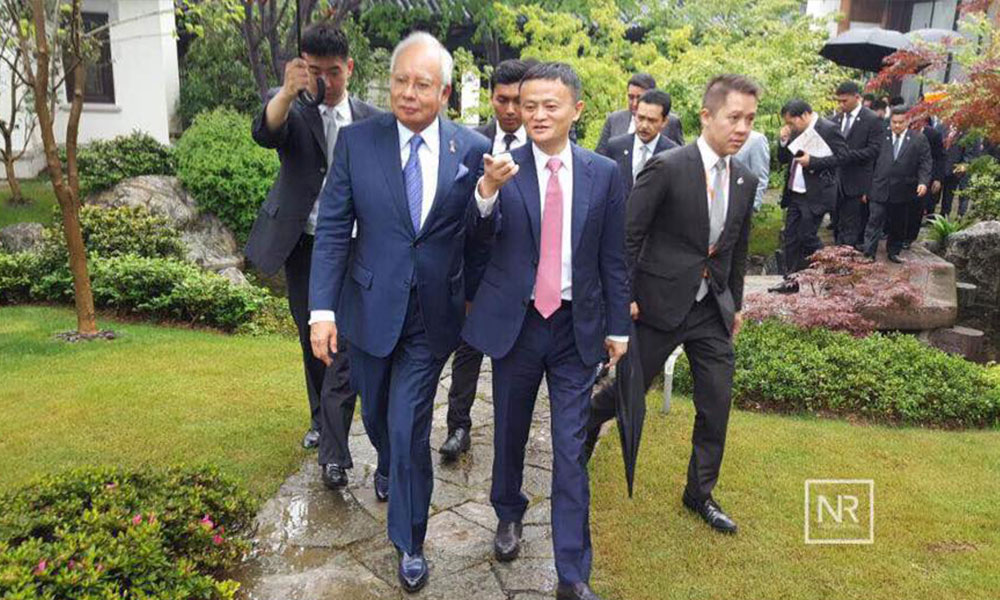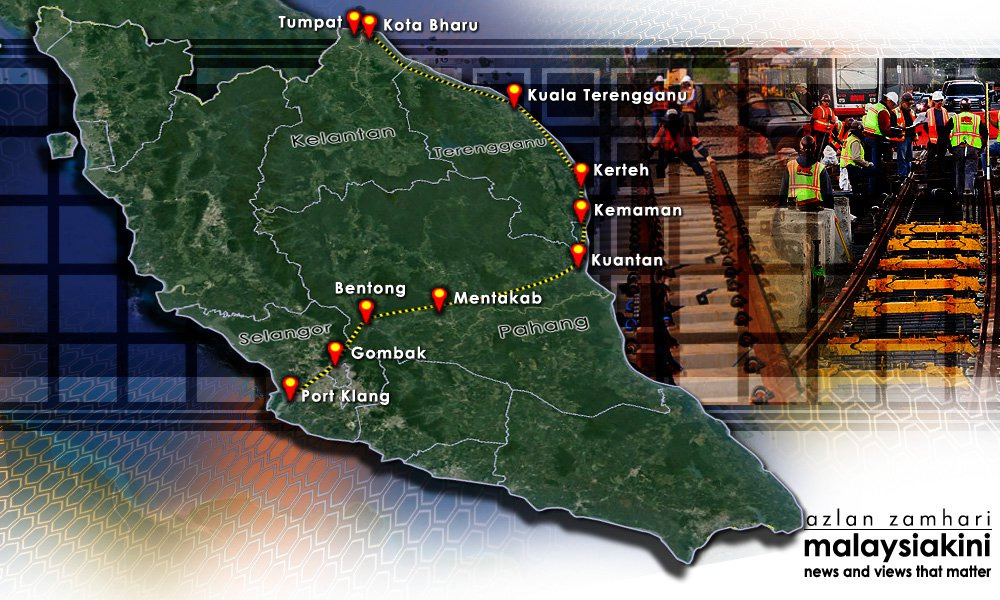
Parti Pribumi Bersatu Malaysia has read the prime minister's thoughts on China, which were published in the South China Morning Post, with interest.
However, it is apparent that to this day, our leaders are unable to grasp the full implication of the strategy they are pursuing, nor of our concerns regarding the well-being of the country and consequently, the rakyat.
Before I proceed, I would like to reiterate our stand in relation to China investments.
We do not oppose foreign direct investments from anyone at all. We actually welcome them as we have always welcomed the Japanese, the Americans, the South Koreans, the British and multiple other investor nations, including China.
 These investments have always had more or less the same prudent terms - funding, joint-venture project management and control, technology transfer, deployment of local resources guided by foreign experts, and ultimately, local ownership of the venture. And unless these nations were of the Third World, our ventures with them are also world class.
These investments have always had more or less the same prudent terms - funding, joint-venture project management and control, technology transfer, deployment of local resources guided by foreign experts, and ultimately, local ownership of the venture. And unless these nations were of the Third World, our ventures with them are also world class.
However, in regard to the forthcoming investments from China, we find the terms to have changed significantly.
As I had pointed out many times before, the terms of these investments have the following effect:
- They vest complete project management and control with the China party and this includes decisions over proprietary technology of China, as well as decisions over resourcing and procurement.
As is evident from various China investments in other nations, as well as the terms for the East Coast Railway Link project, the China approach will be to use China nationals and materials for construction and development. This differs greatly from past national development projects, which give priority to local resources all around.
- Other than building the ECRL and Forest City, the government has failed to articulate how these projects from China will spur the economy and rakyat's well-being.
Take the example of Forest City. Time and again we have pointed out that the development targets the wrong end of the local demographics. Ultimately, it attracts foreign buyers who will be given permanent resident status while our locals will be the ones serving the foreigners.
Yes, some economy is generated, but at what price? A sudden influx of higher income foreign permanent residency holders do not benefit the rakyat much, as the effect on the rakyat's income and the resultant increase in cost of living will not commensurate.
Similarly, opening swathes of the country for low-cost housing but not for job opportunities does nothing to promote economic development.
- Post-project opportunities and terms are vague or lacking. From those we've seen so far, there are no provisions for technology transfer.
This means the hidden cost of the China investments will be in the maintenance and upgrades of the world-class facilities.
In a normal corporate environment, project feasibility will take into account the ongoing maintenance and upgrade costs for the expected life of the asset to be developed.
But the way terms are built with the China investments, costs are for the initial development.
The future is left vague and wishful thinking that Murphy's Law is non-existent, ergo no post-project costs will be incurred. Not even for maintenance.
Putting the bulk of our national development projects into one basket called China is hardly a prudent move.
Simple risk management principle
Again, as articulated before, simple risk management principle calls for a diversification of one's portfolio.
In Malaysia's case, there is no dearth of investors willing to share the investment risk of developing Malaysia. But somehow we choose to skew our investor profile towards China at such risky terms.
 Why? Is the 'One Belt, One Road' initiative so compelling that we have to disregard not only generally accepted economic and financial considerations but also social and security considerations?
Why? Is the 'One Belt, One Road' initiative so compelling that we have to disregard not only generally accepted economic and financial considerations but also social and security considerations?
I doubt that Prime Minister Najib Abdul Razak is trying to tell the world that only by accepting investments from China can we develop world-class infrastructure.
Thus far I have not touched much on the social and security considerations. Allowing unfettered access to only one party violates the principles of and compromises security, as well as broader foreign relations.
China is still a communist country
It might be timely to remind all that China still is a communist country wherein despite there being a class of wealthy individuals, they are frequently tied to the central government.
I do not mean to sound prejudiced, for Malaysia has always held itself and pushed for neutrality and freedom.
However, ideologies are dynamic beasts, and a simple change may tilt the balance of ideologies in Asean towards one that is less supportive of South-East Asia as a Zone of Peace, Freedom and Neutrality (Zopfan).
Malaysia has always been a strong voice of this social agreement, preferring to maintain an ideological balance.
However, putting China as a single biggest investor in the country pretty much obligates Malaysia to their demands and throws the balance off kilter.
Again, I would ask Malaysians to ask themselves this crucial question - what is Malaysia's ideology?
So, no. This opposition is not asking to not build world-class facilities. We would much rather have world-class maintenance of existing world-class facilities we already have, before we build additional world-class facilities.
We would rather have world-class investments and technology from those genuinely interested in making us a world-class people in a world-class nation.
We would ultimately like to do all these with our maruah (dignity) intact so we might be respected for being truly world-class.
Is that too much to ask?
TARIQ ISMAIL is a Bersatu supreme council member.- Mkini


No comments:
Post a Comment
Note: Only a member of this blog may post a comment.